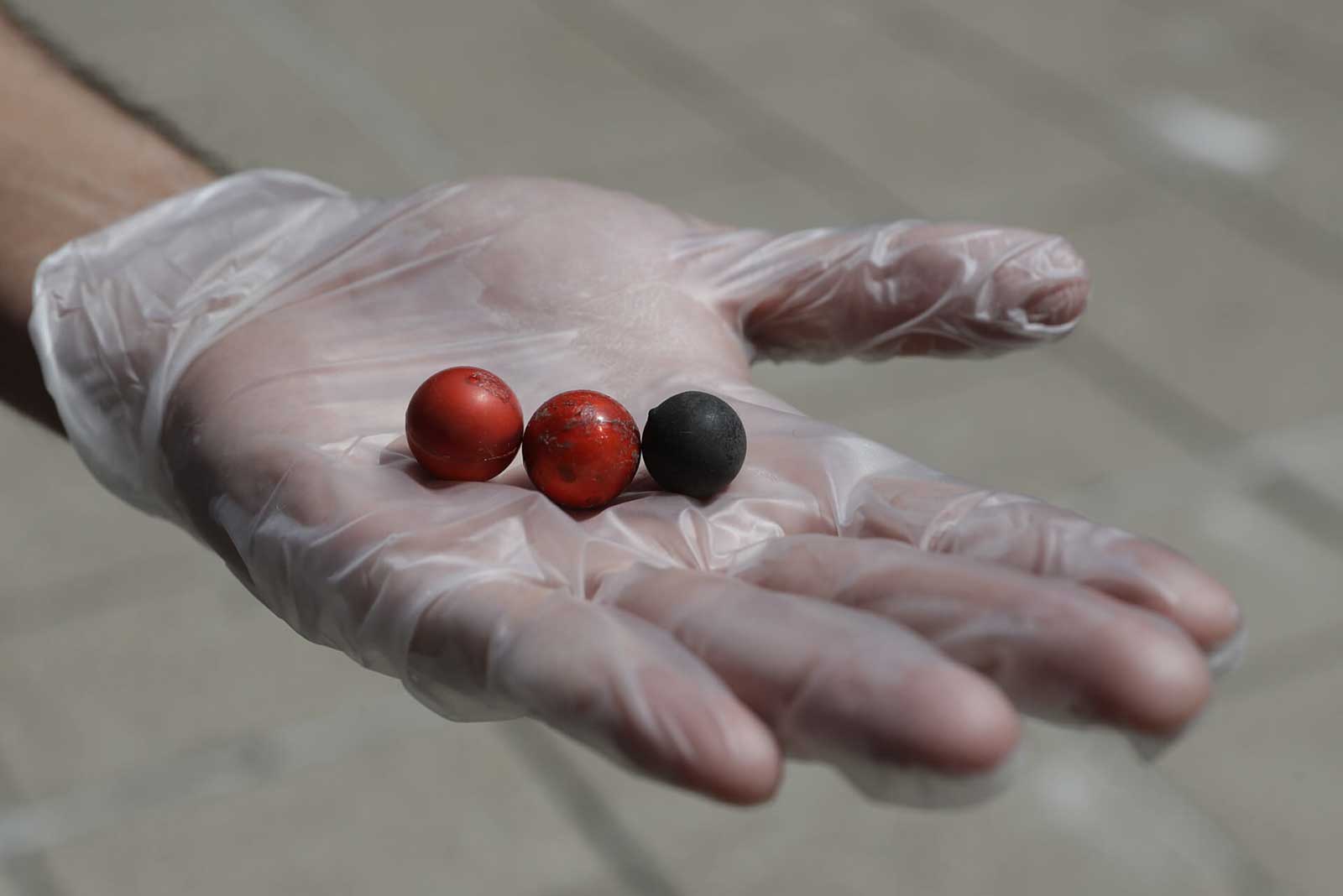A large crowd has marched on the Congress building in the Argentine capital, Buenos Aires, to demand the decriminalisation of abortion.
Tuesday's march came as a bill was introduced to legalise terminations in the first 14 weeks of pregnancy.
Currently abortion in Argentina is allowed only in cases of rape, or if the mother's health is in danger.
You may also be interested in:
Thousands of women wearing green handkerchiefs, which have become symbolic of their fight to legalise abortion, chanted slogans and held up placards backing the latest attempt to get the bill made into law.
Advocates of the bill say getting it passed is an urgent public health matter as official figures suggest that illegal abortions are the leading cause of maternal deaths in Argentina.
The health ministry estimates that at least 350,000 illegal abortions are performed in Argentina every year but women's rights groups think that number may be much higher.
The founder of the National Campaign for the Right to Legal, Safe and Free Abortion, Nina Burgo, said that the bill introduced on Tuesday was largely the same as that defeated last year but that it included some extra safeguards for women seeking an abortion.
The defeat of the bill in the senate last year – after it had been narrowly passed in the lower house – was a blow to pro-choice activists who nevertheless promised to introduce new legislation as soon as parliamentary rules allowed.
A documentary about the activist's effort entitled Que Sea Ley was recently screened at the Cannes film festival.
Media playback is unsupported on your device
Among those gathered to support the new bill on Tuesday were many young women.
High-school student Abril González told Reuters news agency that she hoped that legislators would "think of the lives of the girls that have died from Read More – Source
A large crowd has marched on the Congress building in the Argentine capital, Buenos Aires, to demand the decriminalisation of abortion.
Tuesday's march came as a bill was introduced to legalise terminations in the first 14 weeks of pregnancy.
Currently abortion in Argentina is allowed only in cases of rape, or if the mother's health is in danger.
You may also be interested in:
Thousands of women wearing green handkerchiefs, which have become symbolic of their fight to legalise abortion, chanted slogans and held up placards backing the latest attempt to get the bill made into law.
Advocates of the bill say getting it passed is an urgent public health matter as official figures suggest that illegal abortions are the leading cause of maternal deaths in Argentina.
The health ministry estimates that at least 350,000 illegal abortions are performed in Argentina every year but women's rights groups think that number may be much higher.
The founder of the National Campaign for the Right to Legal, Safe and Free Abortion, Nina Burgo, said that the bill introduced on Tuesday was largely the same as that defeated last year but that it included some extra safeguards for women seeking an abortion.
The defeat of the bill in the senate last year – after it had been narrowly passed in the lower house – was a blow to pro-choice activists who nevertheless promised to introduce new legislation as soon as parliamentary rules allowed.
A documentary about the activist's effort entitled Que Sea Ley was recently screened at the Cannes film festival.
Media playback is unsupported on your device
Among those gathered to support the new bill on Tuesday were many young women.
High-school student Abril González told Reuters news agency that she hoped that legislators would "think of the lives of the girls that have died from Read More – Source










